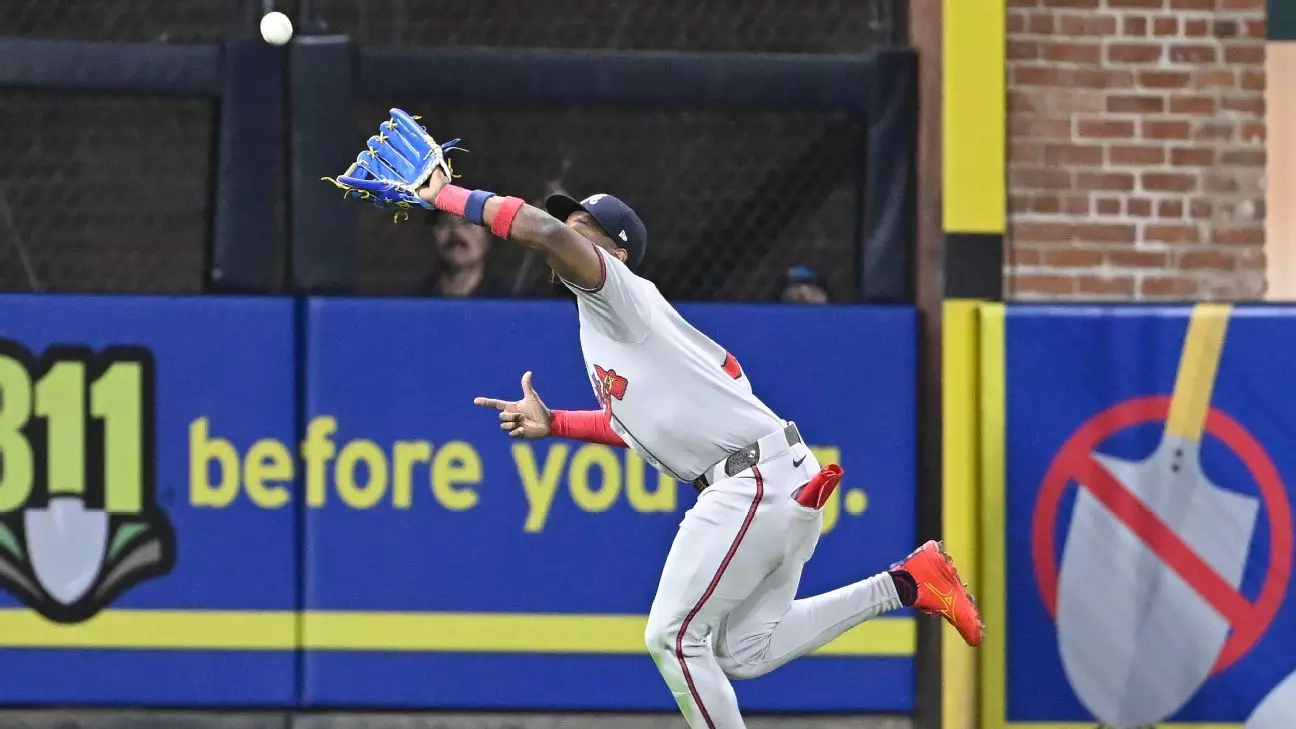The world of professional sports is often likened to a high-stakes chess game where decisions can lead to dramatic victories or catastrophic losses. The recent announcement regarding Atlanta Braves outfielder Jurickson Profar serves as a stark reminder of the fine line athletes walk. Profar tested positive for chloronadotropin, a banned substance, which will result in an 80-game suspension. This news, breaking just before a critical series against the Los Angeles Dodgers, reverberates not just through the Braves organization but also through Major League Baseball as a whole. The implications are extensive, highlighting the challenges of maintaining ethical standards while pursuing excellence.
You Can’t Cheat the Game
Profar’s recent statement, describing this as “the most difficult day of my baseball career,” resonates deeply with fans and fellow athletes alike. He expresses a heartfelt disappointment in himself while emphasizing his passion for the game. It’s a relatable sentiment for any player who has ever faced the consequences of poor choices. The emotional weight of such a public apology reflects how intertwined personal identity and professional reputation can be in sports. His assertion that he would never knowingly cheat the game prompts a crucial question: how rigorous is the support system for athletes when it comes to understanding the substances they consume?
Compounded by Profar’s offensive skills—having had the best season of his career with a batting average of .280 and power stats to match—this suspension comes at a time when he was expected to be a stabilizing force for a team dealing with injuries. Fans must grapple with the whiplash of excitement and devastation, revealing the complex relationship between athlete and supporter in the face of transgressions.
The Consequences of Choices
A look at the Braves’ current standing reveals the cascading effects of Profar’s absence. With star player Ronald Acuña Jr. out, the onus was on Profar to step up his game. Instead, he will miss significant time and become ineligible for the 2025 postseason. Such sweeping repercussions illustrate the gravity of being part of a team dependent on individual performance. What does this mean for the Braves moving forward? The void left by Profar raises questions about the depth of the team’s roster and how they will recalibrate their strategies on the field.
As an organization, the Braves quickly released a statement expressing their disappointment and underscoring their commitment to MLB’s Joint Prevention and Treatment Program. This response reflects a maturity that seems to increasingly define franchises in modern sports negotiations. It acknowledges the gravity of the situation while still expressing support for Profar—a nuanced stance that shows an understanding of the dual nature of sports: performance and personal responsibility.
Finding Solutions When Challenges Arise
For the Braves, solutions are immediately necessary. With Profar’s spot now vacant, the management team must react quickly, either by adjusting the current lineup or by seeking out new players who can fill the void. The recent acquisition of outfielder Stuart Fairchild from the Cincinnati Reds indicates a proactive approach to solidifying the roster. It shows an organizational philosophy where adaptability is crucial, especially given the recent dismal performance against the Padres.
Moreover, the situation presents an opportunity for players like Alex Verdugo, who could emerge as an essential part of the team. The integration of new talent demands not only skill but also chemistry—an essential component that can turn potential into performance when pressure mounts. This opens up avenues for both veteran players and newcomers to step into the limelight, but it also places additional strain on the team dynamic.
A Broader Conversation on Performance Enhancers
Profar’s case is just one among many discussions within the realm of sports concerning performance enhancement and ethical competition. Understanding the significance of hormones like hCG and the consequences of their use reflects a broader societal issue—what lengths individuals will go to achieve greatness? For young athletes looking up to professionals like Profar, the message can be mixed. The quest for success must always be weighed against the ethical implications of one’s choices.
As athletes navigate the pressures to perform, society must examine how we promote a culture of healthy competition. This incident serves as an urgent reminder that the love of the game should never be compromised for personal gain. The focus shouldn’t just be on the penalties but also on fostering an environment supportive of athletes willing to face adversity with integrity.
As Profar faces an uncertain road ahead, the Braves and their fans must summon resilience, proving that while challenges may arise, they are also opportunities for growth, learning, and unity. The true test lies not just in who steps up next, but in realizing that every setback has the potential to forge a stronger legacy.

